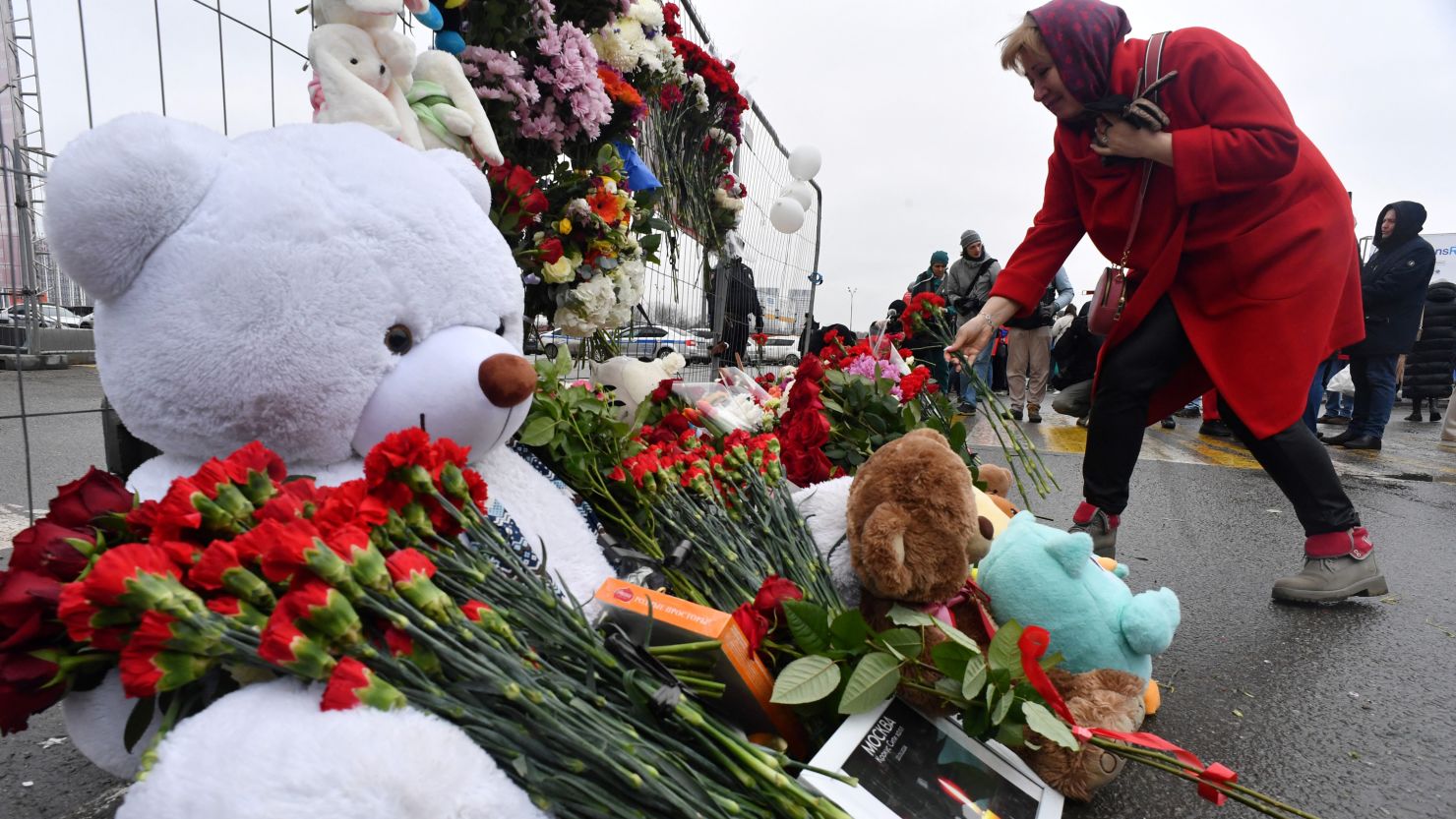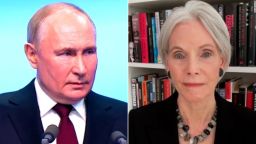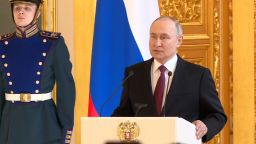The headlines from Russia over recent weeks have been bleak: The death of opposition leader Alexey Navalny; a rigged election; and a ruthless insistence by President Vladimir Putin in pressing ahead with his war on Ukraine.
Now comes another shock to the system, with the appalling murder of at least 139 people in a terror attack at a concert hall just outside Moscow. And with its brutal official response to the attack, Russia seems to have taken an even darker turn.
While terror group ISIS has claimed responsibility for the massacre, releasing appalling footage of the carnage, the Kremlin has obfuscated. Putin first insinuated – implausibly, and without evidence – that a “window” had been opened by Ukraine for the terrorists to escape across an active front line. On Monday, he said the crime had been ”committed by radical Islamists” but again alleged that the perpetrators planned to flee to Ukraine. Kyiv has vehemently denied involvement and called the Kremlin’s claims “absurd.”
Kremlin spokesman Dmitry Peskov meanwhile has dismissed questions about warnings from the United States about the risk of terror attacks in Russia. “Intelligence is never provided to the Kremlin,” he said in a call with reporters Monday. “It is provided through channels from one intelligence agency to another intelligence agency. This is classified as sensitive information that is not disclosed.”
Peskov added: “There are currently no contacts with Westerners now.”
Putin rose to power on a promise to get tough on terrorists: The former KGB officer was a relative political unknown when he pledged in 1999 to “waste” Chechen separatists.
That threat followed a series of apartment bombings in Russia that claimed hundreds of lives and touched off weeks of nationwide panic. Putin would follow through on his threat with the invasion of breakaway Chechnya, a move that vaulted him to the position of Russia’s tough-guy-in-charge, an image that would help him secure undisputed power.
The second war in Chechnya was a brutal affair, and human-rights activists documented the appearance of so-called “filtration camps” where civilians were routinely subjected to humiliation, torture and sometimes extrajudicial execution. Russian troops repeated the practice in occupied parts of Ukraine.
The ugly conduct of Russian security forces in both Chechnya and Ukraine has often remained out of public view, at least when it came to the narrative promoted through official Russian media. But after Friday’s Crocus City attack, the brutality of Russian security services appeared on naked display.
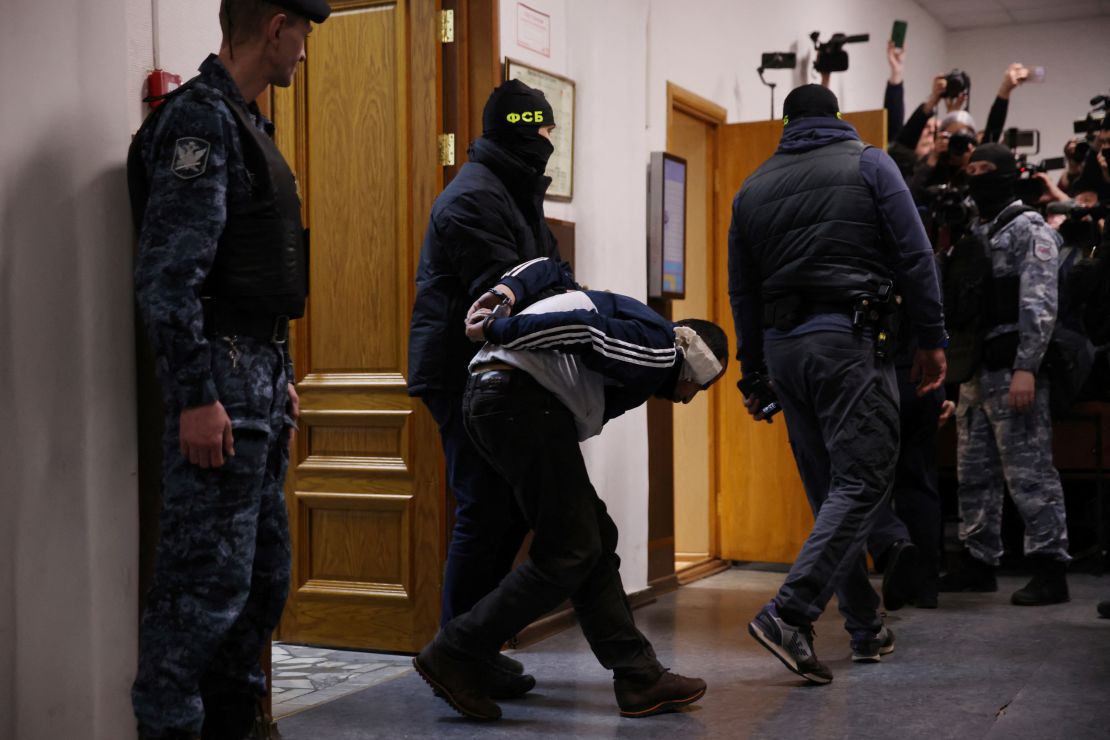
Video footage and still images that have surfaced on Russian social media appear to show the violent interrogation of several of the men alleged to have taken part in the terror attack. One video appears to show one of the suspects, Saidakrami Rachabalizoda, being pushed face-down to the ground while having part of his ear severed by an interrogator. A pro-Kremlin Telegram channel published a still photograph that appeared to show the electrocution of another.
The response to this? Open gloating on the part of some prominent, Kremlin-connected figures.
Margarita Simonyan, the editor-in-chief of Russian state propaganda network RT, approvingly posted a video on the Russian social network VK that appeared to show a suspect in the Crocus City attack quaking while being questioned by interrogators. And in a separate post on X, Simonyan posted video of a handcuffed suspect being brought into court while bent over by security officials and a video of Rachabalizoda in court with a bandaged ear.
“I never expected this from myself, but when I see how they are brought into court bent over, and even this [severed] ear, I feel nothing but pleasure,” she wrote.
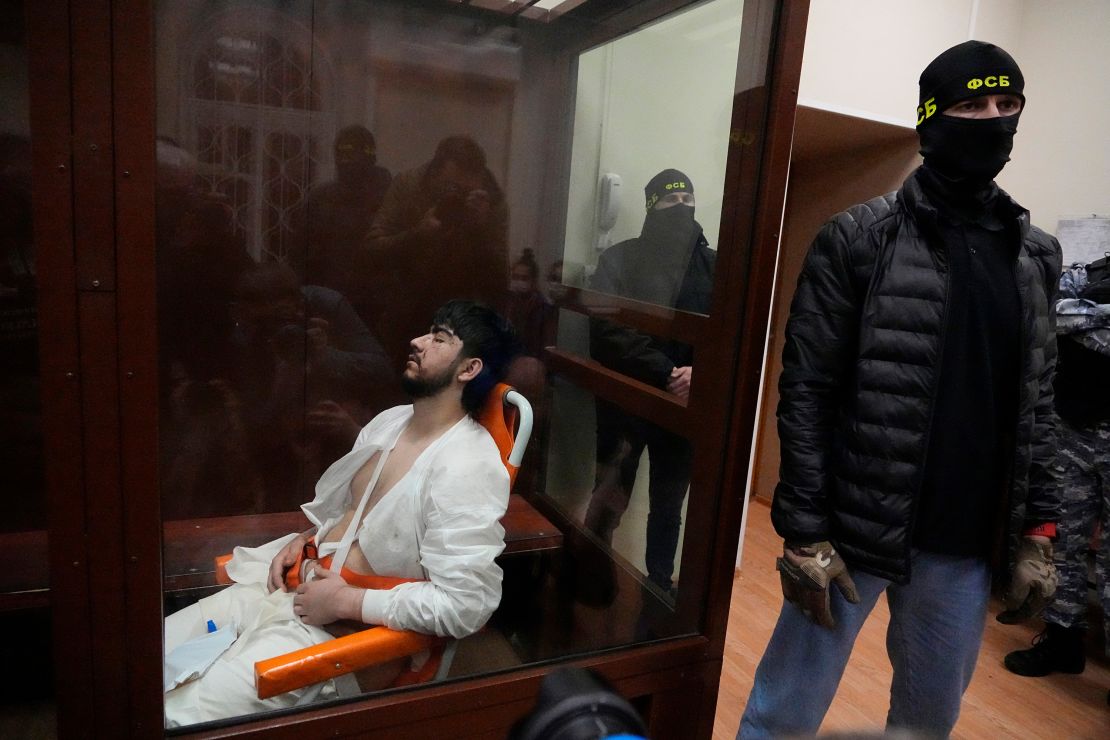
The Kremlin’s silence on the matter has been telling, with Peskov declining to comment when asked about the evidence of abuse of suspects. It sends a message to ordinary Russians – and the world – that Russian state security forces are capable of anything.
Dmitry Medvedev, Russia’s former president and placeholder for Putin during a four-year interregnum, was characteristically militant in his comments on the tragedy. “Everyone asks me, what is to be done?” Medvedev said, according to Russian state news agency TASS. “They were caught. Well done to everyone who caught them.
“Should they be killed?” Medvedev continued. “Definitely. And that will happen. But it is even more important to kill everyone involved. Everyone. Who paid, who sympathized, who helped. Kill them all.”
Medvedev is no longer a top political player, but he has emerged since the full-scale invasion of Ukraine as a reliable barometer of far-right sentiment in Russia. And that sort of militant sentiment appears to be on the rise. Russia does not have the death penalty, but in a statement on state channel Rossiya-24, Vladimir Vasiliev, the head of the United Russia faction in the lower house of parliament, said fellow lawmakers might consider the issue of reviving it.
“Many questions are being asked now about the death penalty,” he said, according to state news agency RIA-Novosti. “This topic will certainly be deeply, professionally, and meaningfully addressed. And a decision will be made that will meet the moods and expectations of our society.”
The sentiments of wider society may be hard to gauge, but the mood of Russia’s political class is already clear. It is vengeful, and all options are on the table.
CNN’s Anna Chernova contributed reporting.

